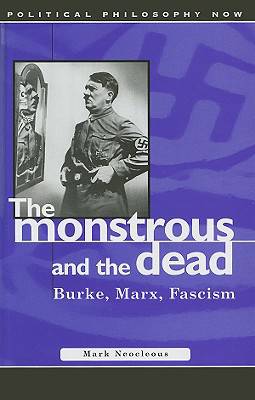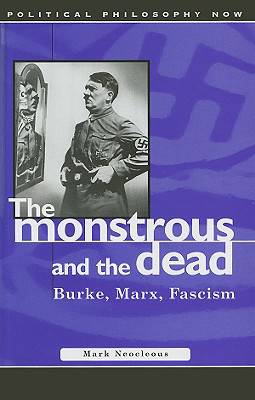
- Retrait gratuit dans votre magasin Club
- 7.000.000 titres dans notre catalogue
- Payer en toute sécurité
- Toujours un magasin près de chez vous
- Retrait gratuit dans votre magasin Club
- 7.000.0000 titres dans notre catalogue
- Payer en toute sécurité
- Toujours un magasin près de chez vous
Description
What is the political function of monstrosity? What is the nature of our political relationship with the dead? Why are the undead so threatening? In The Monstrous and the Dead, Mark Neocleous explores such questions as they run through three major political traditions: conservatism, Marxism and fascism.
One of the things uniting these otherwise opposing traditions is that they share a common interest in the dead. This is therefore a book about the politics of remembrance, showing that how and why the dead register in our political lives constitutes a major dividing line for the political traditions in question: are the dead to be reconciled with the living in a conservative fashion, resurrected for the cause of fascism or are their hopes and struggles to be redeemed for a communist future?
Exploring these issues reveals that, as well as leaving traces in memories, dreams and unfulfilled wishes, the dead also generate fears, most notably the fear that they are not really dead: they are undead and thus monstrous. The book therefore simultaneously considers the function of monstrosity as a rhetorical political device: in Burke's response to the monstrous revolution, Marx's use of the vampire and fascism's concept of the Marxist-liberal-Jewish menace.
The outcome is an original reading of key thinkers and movements in western politics, a provocative account of the role of political metaphor and an eclectic argument concerning the place of the dead in historical struggles.
Spécifications
Parties prenantes
- Auteur(s) :
- Editeur:
Contenu
- Nombre de pages :
- 152
- Langue:
- Anglais
- Collection :
Caractéristiques
- EAN:
- 9780708319048
- Date de parution :
- 24-11-05
- Format:
- Livre relié
- Format numérique:
- Genaaid
- Dimensions :
- 146 mm x 225 mm
- Poids :
- 371 g

Les avis
Nous publions uniquement les avis qui respectent les conditions requises. Consultez nos conditions pour les avis.






